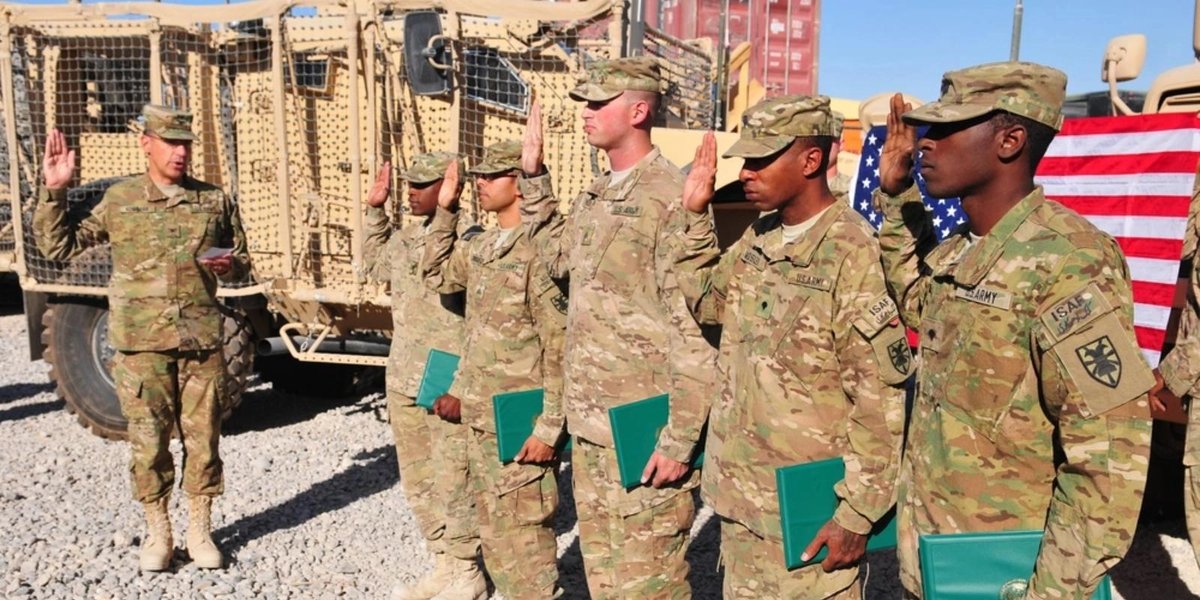HERE'S WHAT TROOPS NEED TO KNOW ABOUT THE ECONOMIC HARDSHIP BONUS
COMMENT
SHARE

There is a little bit of good news for military personnel and those who dream of joining the Army. There will be an added $20 on top of their pay every month, which is called the "economic hardship bonus." However, does the payout make any substantial impact on their salary? This was authorized by Congress last year; its aim is to help neutralize the rising cost of living throughout the country.
Those troops who are in the E1 to E2 rank will most likely get the bonus, and it will reflect immediately on their pay. Junior troops have always been hit by financial hardships, and the administration wanted to help in any way that they could, but does it make any difference?
The Economic Hardship Bonus Coverage
Lawmakers grew concerned about the rising cost of goods in the market, and service members might not be able to afford even their basic needs since their pay cannot keep up with the private sector.
With this, Congress approved a budget of around $43 million for service members; anyone except E-6 in rank will not be given the benefit. Even though the bonus was approved in December, it was not until late March that they had enough funding, leading to the Pentagon's slow implementation.
The Pentagon took the funds, and they were the ones who decided who would receive the economic hardship bonus; they had to budget it wisely before the money ran out. With the calculated funds and the list of troops who are eligible to receive it, they are projected to pay at least 266,000 people.
One of the defense officials mentioned that the bonus would be paid at the end of every month; however, Justine Tripathi, House Armed Services Committee spokesperson, mentioned that the additional pay was just temporary and that there was more to be done and mentioned that the upcoming NDAA of 2025 will provide junior troops with a 19.5% pay raise.
Last June, the House proposed that junior enlisted troops will have a 15% pay raise on top of their suggested 4.5% raise for all service members. This will equal a total of 19.5%. The Biden administration opposed the proposal, mentioning that they need to wait until they can make such decisions before the annual compensation review is finished.
A study conducted by the HASC that was released in April found out that troops, particularly the junior service members and those who are supporting their large families, struggle to afford food and housing.
The salary of the junior troops failed to compete with the rising costs of basic goods. Another study that was conducted by the Military Family Advisory Network found out that more than half of military families, Vets, and active service members are considered to be financially poor. While the junior troops are receiving low compensation, the Senate and the House of Representatives are still negotiating with this year's NDAA, and the prospect for a hike is still unclear.
Current Salary of the U.S. Troops
Across the board, all forces are being paid a base salary, and there are some determinants in terms of how much a trooper will take home; some of this will depend on rank, experience, years of service, and pay grade. Today, an enlisted service member with a pay grade of E-1 will have a paycheck of $2,017.20 per month with two years or less of experience. On the other hand, a more senior trooper can receive up to $4,388 with an E-6 pay grade and over six years of experience.
Officers have a different story; they receive higher compensation. An O-1 with two years or less of experience can take home $3,826, while a senior officer will have a pay grade of $8,684 with a 0-4 rank with 10 years of experience.
The basic pay is the standard salary of a service member, but there are also several tax-free allowances that come with it, along with special pay considering your qualifications, military specialties, or duty station since all of them are part of the normal pay of a service member. Most of the allowances they receive are nontaxable, which is helpful in sustaining their needs.
Even though the military offers many allowances and bonuses, it seems that the compensation is still not enough. It's good that they will receive an economic hardship bonus, but does it really help alleviate their lives and make them competitive enough to compete with the salaries of the private sector?
Suggested reads:
Join the Conversation
Allison Kirschbaum
Veteran, Military History & Culture Writer at MyBaseGuide
Allison Kirschbaum is a Navy Veteran and an experienced historian. She has seven years of experience creating compelling digital content across diverse industries, including Military, Defense, History...
Allison Kirschbaum is a Navy Veteran and an experienced historian. She has seven years of experience creating compelling digital content across diverse industries, including Military, Defense, History...
Credentials
- Navy Veteran
- 7 years experience in digital content creation
- Expertise across Military, Defense, History, SaaS, MarTech, FinTech industries
Expertise
- Military History
- Naval Operations
- Military Culture
SHARE:



